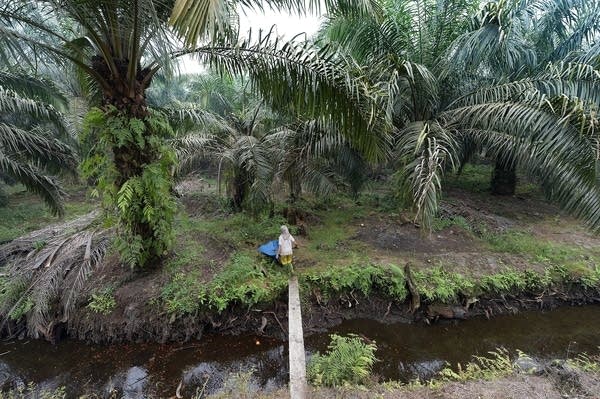Why forests are crucial for reining in climate change

Just before the United Nations issued life-or-death warning the world needs to cut drastically its greenhouse gas emissions, a group of scientists made the case for why addressing deforestation is just as important as curbing fossil fuel use.
Forests act as sinks for the planet, cleaning the atmosphere as they suck up carbon dioxide — the primary greenhouse gas trapping heat on earth.
While forests can seem distant for the bulk of humanity living in cities, addressing deforestation is crucial in attempts to keep global temperatures from warming 1.5 degrees Celsius.
Here's why:
Create a More Connected Minnesota
MPR News is your trusted resource for the news you need. With your support, MPR News brings accessible, courageous journalism and authentic conversation to everyone - free of paywalls and barriers. Your gift makes a difference.
• Forests are still getting chopped down at high rates. In fact, the deforestation rate has been flat for the past decade, said Deborah Lawrence, a University of Virginia environmental sciences professor. While Brazil and some others have reduced their deforestation rates, she said, other places are increasing theirs.
• Cutting down forests accounts for 10-12 percent of global carbon emission. If forests were a country, they'd be the third-biggest carbon emitter — behind only the U.S. and China.Deforestation accounts for 5 gigatons of carbon emissions annually, Lawrence said.
• When they're cut down, forests release stored carbon. If destroyed, the current forest landscape would release over 3 trillion tons of carbon dioxide. To avoid catastrophic warming, carbon emissions must be capped at about 750 billion tons over the next century, according to recent research.
• They're needed for cleaning the atmosphere.Forests clean up 25 percent of all carbon dioxide people emit. If the forests were gone, Lawrence said, "we would already be past 1.5 degrees of warming." Or, past the tipping point
• Forests are a "giant air conditioner" for the planet. Especially in tropical regions, forests recycle water that cools the region and the atmosphere above, Lawrence said.
This article is based on a Climate Cast segment featuring an interview with Deborah Lawrence and a Climate Story from Danny Friedman. Hear the whole show by using the audio player above, or search Climate Cast wherever you get podcasts.